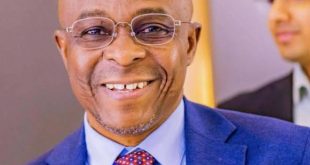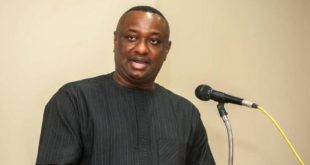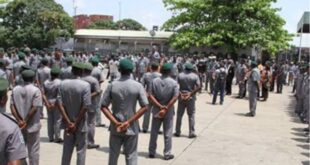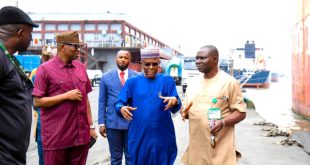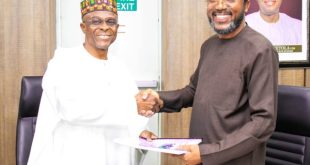
· CBN lacks capacity for intervention
· Finance Minister gives no hope

The surprising and sudden reversal of the twin flagship policies of President Bola Tinubu’s administration has continued to elicit divergent reactions from economists and financial analysts many of whom had lauded the policies but stated that they were not sustainable because some fundamentals were not established.
In his inauguration speech on May 29,,2023, Tinubu announced the removal of subsidy on fuel pump price and put in place a harmonized foreign exchange windows, which allows naira to trade freely against the dollar prompting the currency value to plummet by 40 percent, a development that brought about drastic changes and increase prices of goods and services with the consequent inflationary trend.

MMS Plus reports that the naira hits a new record low on the parallel market last week owing to the dwindling supply of dollars by the Central Bank of Nigeria(CBN),forcing buyers to turn to the street for the greenback. The naira exchanged for between N970 and N1000 and N903 at the start of the month of September, according to forex dealers in Lagos.
Consequently, to keep the pump price of fuel at N620 per litre, the Federal Government surreptitiously resumed subsidy payment with N169.4billion paid in August.
Without any official pronouncement from the Federal Government, there have been several reports suggesting that the current stability in price of fuel in spite of the worsening exchange rate and international crude price exceeding $95 per barrel is an indication of subsidy return.
It has been reported that a document by the Federal Account Allocation Committee(FAAC) showed that in August 2023,the Nigerian Liquefied Natural Gas(NLNG) paid $275million as dividend to Nigeria through the Nigerian National Petroleum Company Limited(NNPC)Limited which used $220million(N169.4 billion)out of the $275million to pay for Premium Motor Spirit(PMS) subsidy.
Reacting to the return of subsidy by Federal Government, the Director and Chief Executive Officer of Centre for the Promotion of Private Enterprise (CPPE), Dr. Muda Yusuf said it was expected because there could be an intervening political side of economic management.
According to him, “there’s also the political side of economic management, if the government was to leave the fuel price purely to market forces, or to the dictates of global oil price, by now petrol price would have climbed to over 800naira per liter. So, the government has to make a choice – do you want the citizens to be paying 800 plus per liter or you want to absorb some of these costs in order to protect the citizens from further agony?
“It’s a political decision and I think that there is always a point you get to as a political leader that you have to take some political decisions. It is not everything that should be pure economics. You can see the pains and agony of the citizens on the street, so I think that’s what the government has done and I agree with that position. The government is already making savings so far, the savings they would have made annually, if we annualize it, cannot be less than 10trillion naira that is savings from both the foreign exchange convergence and fuel subsidy removal. So, if you’re making that kind of thing, why will you not give part of it to your citizens? So, I think it’s perfectly in order.”
Dr. Yusuf also confirmed that Federal Government has equally suspended or jettison the harmonized foreign exchange windows.
His words: “They’ve tried it, it keeps coming. Although they have applied some break on that. or didn’t you notice it? They have applied some breaks. I mean, you cannot just leave the market to determine things completely, no. You have to look at what works. You have to face reality, you have to be pragmatic, it’s not everything that is pure economics, certainly not.
“We have to go back to the drawing board and see what model we can adopt and what factors are guiding this exchange rates reform because the outcome of the reform is far short of the expectation of some of us that were actually clamoring for convergence and all of that. The outcomes are completely at variance with what we expected, so, I think we have to go back to the drawing board and look at what is happening,”he declared.
That also leaves a lot of people with some concerns because we expected that, if you recall Buhari and Emefiele in 2016, similar thing happened and they had to go back, so we expected the incoming president to take a look from history to say look, this is what is expected, but as it is now, things have gone so bad that we can’t even get back to where they were.
Asked why Tinubu’s government could not learn from the mistakes of his predecessor, Muhammadu Buhari, who in 2016 took a retreat from the convergence of exchange rate windows earlier introduced following the depreciation of naira value, the former Director General, Lagos Chambers of Commerce and Industry(LCCI) said, “At that time in 2016, there was this decision, that was when they introduced the I and E windows, I remember at that time Buhari was very reluctant to pay, but, when Buhari travelled out, and Osinbajo was in charge when he introduced the I and E window.
“And for quite a while, it worked very well. So much so that at some point, even the exchange rate at the I and E window was higher than the rate in the parallel market, until such a time when the thing now began to diverge again. So, it worked that time and it wasn’t as if it was completely abandoned but when the thing started to diverge, Emefiele refused to tamper with the official rate, although, he adjusted a little but, he refused to tamper with it. But, somehow, he was able to find some dollars to regularly intervene in the official window, so that did not allow the situation to deteriorate too much. Even though the margin was there, things were a bit manageable.
“But, the difference between then and now is that I’m not sure the current government of the current CBN has been able to intervene. I’m not sure they have the dollar. Because if you look at data in 2022, total intervention from CBN was about 21bn US dollar, if you break it down averagely in a month, it’s about 1.5bn dollar, but if you look at these people, I’m not sure they are able to put even 5million dollars in the market every month.
“So, there’s a serious issue with supply. So, if you have that kind of issue with supply, it has a way of fueling speculation then coupled with the release of CBN account and people saw how bad things were. That’s another additional speculation. So, you have something like a run, a run on the bank, a run on the currency. So, this is what has brought us to where we are now. There is almost a complete collapse of confidence. So, I don’t know what we are going to do, maybe we will go to IMF. I don’t know how much we can get from IMF to bail us out of this.
Recall that the Chief Executive Officer(CEO) of Cowry Assets Management Limited, Chief Johnson Chukwu and a handful of financial and economic analysts had lauded the single window exchange rate policy but doubted the capacity of the nation’s apex bank to sustain consistent market intervention with dollars to validate the policy and so warned against the sudden retreat and its impact on the economy.
The Minister of Finance and Coordinating Economy, Mr. Wale Edun speaking with the media in New York at the just concluded United Nations General Assembly(UNGA) said CBN had no dollars to intervene in the foreign exchange market especially clearing the backlog of demands.
 MMS PLUS NG – Maritime, Aviation, Business, Oil and Gas News Online Newspaper with coverage in Maritime, Oil and Gas, Aviation, Power and Energy as well as Financial News
MMS PLUS NG – Maritime, Aviation, Business, Oil and Gas News Online Newspaper with coverage in Maritime, Oil and Gas, Aviation, Power and Energy as well as Financial News



